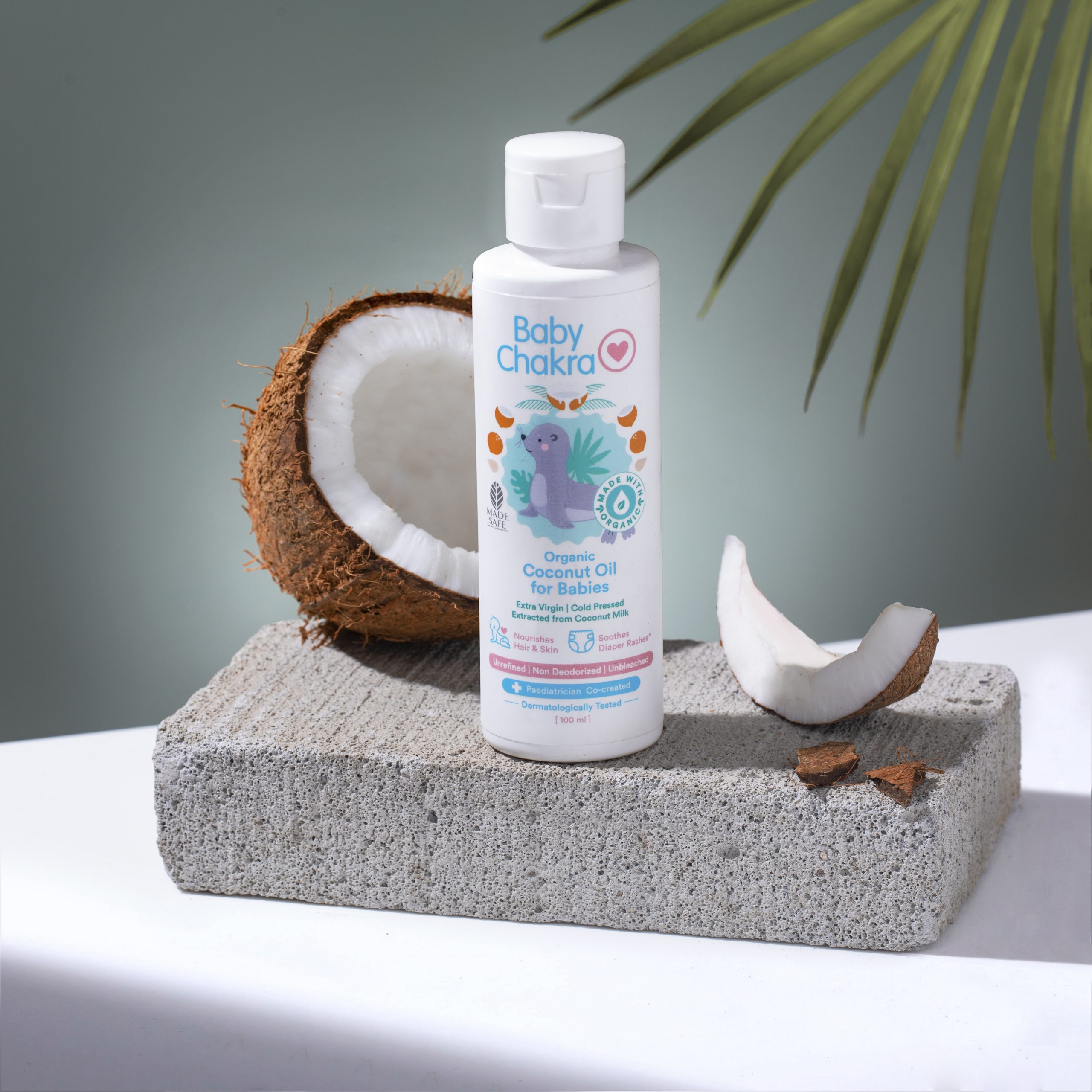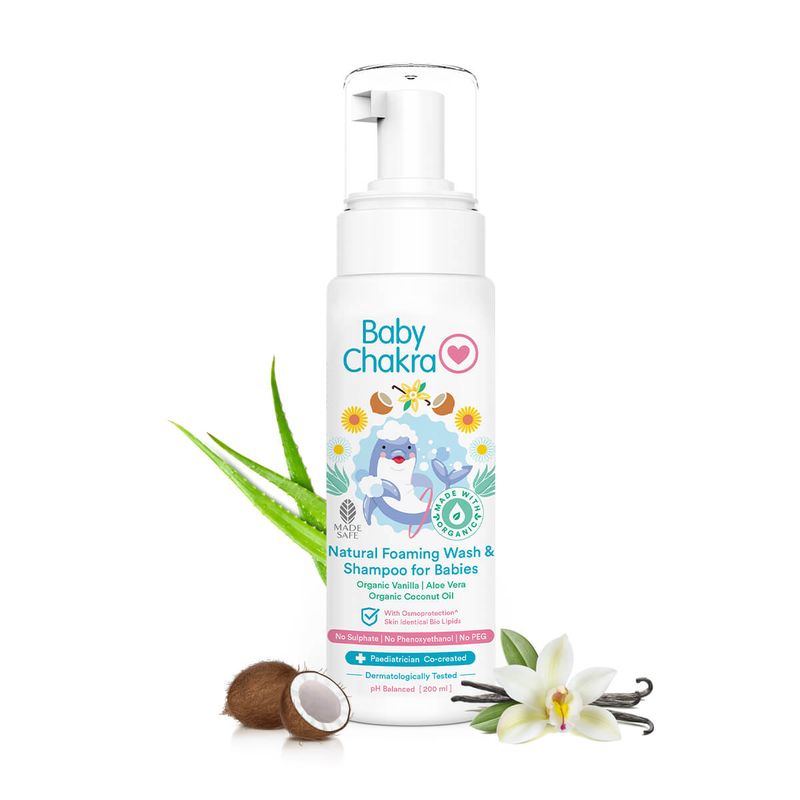
Baby’s Dry Scalp: 7 Ways To Keep It Nourished
1 Sep 2022 | 4 min Read
Reema Shah
Author | 740 Articles
Whether your baby has thick locks or just one or two strands of hair, it needs care and washing. As a new parent, you might be wondering how to care for your baby’s delicate scalp. From cradle cap to dryness, your baby’s scalp needs nourishment and gentle care. Here are seven tips to do it right.
7 Tips To Care For Baby’s Dry Scalp
1. Apply Organic Coconut Oil
Coconut oil is rich in Vitamin E and has antioxidant properties. Pick a cold-pressed organic coconut oil as it is prepared without any heat and hence retains all the vital nutrients found in coconuts.
Applying organic coconut oil to your baby’s scalp a few times a week helps in boosting blood circulation and promotes hair growth. Before a bath, massage a little bit of coconut oil into your baby’s scalp. It can help to loosen the dry skin condition commonly known as cradle cap in babies.
2. Detangle Your Baby’s Hair
Curly or textured hair can easily form knots and tangles. Hence, you can use a soft brush to gently detangle your baby’s hair to avoid this from happening as it can cause breakage and cause hair loss. Detangle your baby’s hair gently every day to prevent tough knots.
3. Use Baby-Safe Shampoo
When it comes to picking baby products, it’s important to avoid products that have harsh chemicals. Products that have toxins and harmful chemicals can damage your baby’s delicate scalp and hair. Pick a natural shampoo that has moisturising properties and does not dry the baby’s scalp.
Some ingredients that must be avoided when picking a baby’s shampoo include phenoxyethanol, sulphates, mineral oil, synthetic fragrance and parabens. Pick a shampoo enriched with natural oils like cocoa oil, coconut oil, vanilla oil and sandalwood oil that have nourishing properties and promote baby’s hair growth.

4. Pick Gentle Fabrics
Towels and pillows come in contact with your baby’s scalp regularly. Hence if they have rough or coarse fabric, they can cause your baby’s hair to break. When buying towels and pillow covers for your baby, pick materials like cotton and microfiber which are gentle and prevent damage to your baby’s delicate hair follicles.
5. Pat Dry
After you’re done washing your baby’s hair, immediately pat dry the hair and body with a soft towel. Avoid rubbing your baby’s hair, instead, pat gently.
6. Drying Your Baby’s Hair
Let your baby’s hair dry out naturally. However, if the weather is cold and you want to dry your baby’s hair right away, use a soft hooded towel to dry your baby’s strands. Soak out excess water using a towel gently without rubbing.
In case you want to use a hair dryer, be careful that the hair dryer’s temperature does not get overheated. First set the temperature to low heat or a cool setting and then use it. Also, avoid the air getting directed towards the baby’s face.
7. Frequency of Washing
You can wash your baby’s hair about twice a week. Ensure that you wash your his/her scalp gently to get rid of excess oil. However, if the hair feels greasy or needs a little cleanse before the hair wash time is due, you can use a warm washcloth and water to do it. Gently wipe your baby’s hair with a warm wet cloth. Your baby’s hair will mostly be fine until the next time you shampoo your little one’s hair.
Your baby’s scalp and skin are sensitive and hence need delicate products too so that they are free from any infections or dryness.
Cover Image source: Canva
A


Related Topics for you
Suggestions offered by doctors on BabyChakra are of advisory nature i.e., for educational and informational purposes only. Content posted on, created for, or compiled by BabyChakra is not intended or designed to replace your doctor's independent judgment about any symptom, condition, or the appropriateness or risks of a procedure or treatment for a given person.


